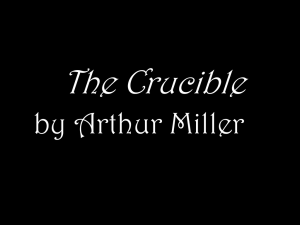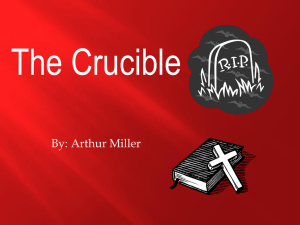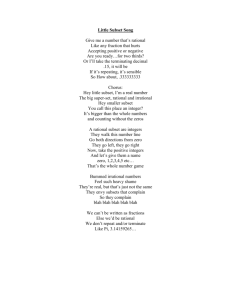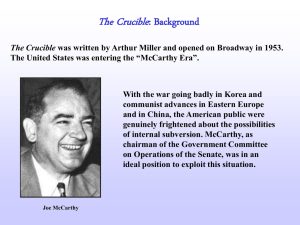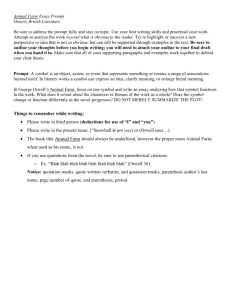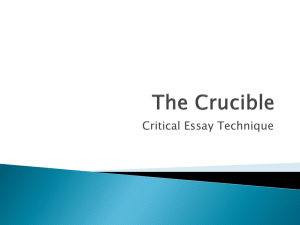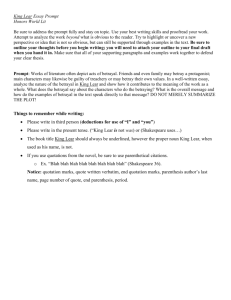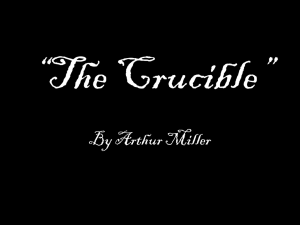Crucible: Authorial Intrusion
advertisement
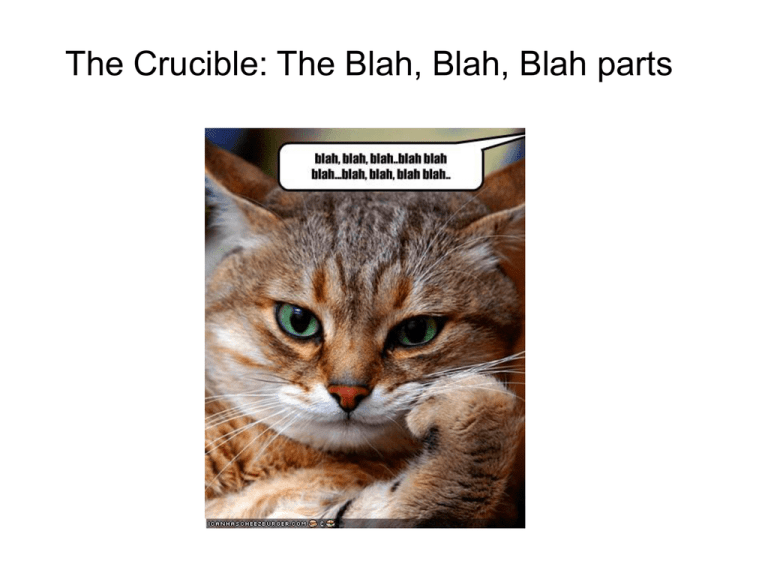
The Crucible: The Blah, Blah, Blah parts Authorial Intrusion Authorial Intrusion is just what it sounds like: when the author intrudes on or interrupts the flow of the story with his/her own comments. Arthur Miller LOVES this! He frequently interrupts The Crucible with lengthy comments about characters, opinions about historical background, and other asides. Why does he do this? And how is it related to this man? During the 1940’s and 1950’s During the 1940’s and 1950’s America became increasingly worried about the threat of communism in Eastern Europe and China. Senator McCarthy gets famous Young Senator Joseph McCarthy made a public accusation that more than two hundred “cardcarrying” communists had infiltrated the United States government. This was later proved untrue. House Un-American Activities Co. McCarthy formed this in 1938 to supposedly fight communism. It became a place for “show trials” where actors, authors and directors – including Arthur Miller – were questioned about their alleged communist sympathies. Miller wanted people to connect: Un-American Activities Committee His blah blah blah is for a reason! Miller wanted his audiences to take away from the play a political message, as well as to speculate about the aspects of our nation’s history that would lead to McCarthyism. This is the reason for the AUTHORIAL INTRUSION. Act One: Paris • As the curtain rises, Reverend Paris is kneeling beside the bed of his daughter Betty Paris. • She is lying frozen on the bed. • He was age 40 at the time of these events. Paris = Villain • He felt he was persecuted • Easily insulted • Widower/father, but did not like children What was Salem like at this time? Established 40 years before • A tiny town of a meeting house and a few dark houses. • Europeans saw the whole province as a barbaric frontier inhabited by a set of fanatics. The Puritan Creed • No theaters • No “vain enjoyment” • Did not celebrate Christmas • A Holiday from work meant only they must concentrate even more on prayer Hard Work… They were just settling this province, and everyone needed to work very hard to survive. This, even more than the creed, may have kept people moral. Mind each other’s business “The predilection for minding each other’s business was time-honored among the peope of Salem.” The Wilderness… Salem was at the edge of a vast wilderness, “dark and threatening” with the threat of attack from Native American tribes. One true faith The Puritan’s fathers had been persecuted in England. They in turn persecuted anyone who held different beliefs. “They believed, in short, that they held in their steady hands the candle that would light the world.” The times they were a-changing 40 years had passed since the Mayflower arrived in 1692. Political unrest about who would lead their village. THEO-CRACY THEO = God, deity Crac, crat = rule, ruler Theocracy kept Salem safe The religious rule of Salem was made for good reasons – “to keep the community together and to prevent any kind of disunity that might open it to destruction…” We also give up freedom for safety. Yet, on the other hand… While established for good reasons, people began to rebel against the repression and lack of freedom of their government. “The witch-hunt was a perverse manifestation of the panic which set in among all classes when the balance began to turn toward greater individual freedom.” Witch trials were an To publically express guilt and sins. To express long-held hatred of neighbors. To try to get other people’s land. To settle old scores. Whew!!! And now on with our play! Um…sorry…not that show…The Crucible
